Ready for a little sobering news?
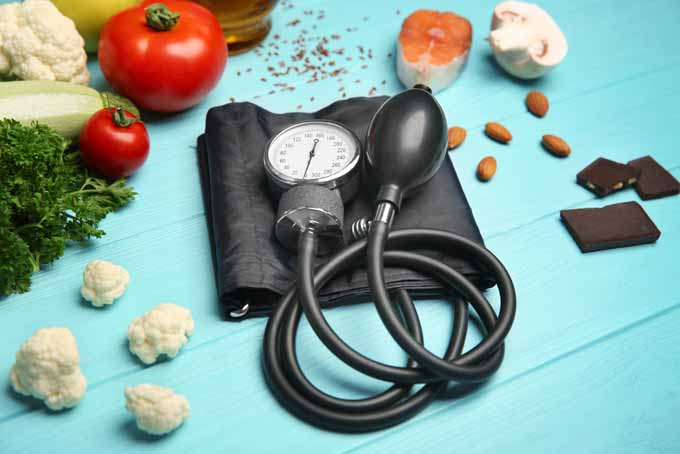
Cardiovascular disease (CVD) is still the leading cause of death throughout the world.
In the US, it ranks as the number one killer. In Canada, it takes second spot. In the UK, it still tops the list for men. It’s number one in Australia, number two in China, number two in Europe…
And the most striking factor of this epidemic is that 75 percent of heart disease around the world can be attributed to modifiable risk factors.
According to the World Health Organization (WHO), these risk factors are high blood pressure, unhealthy cholesterol levels, smoking, inactivity, obesity, unhealthy diets, and diabetes.
Now, the good news is in that word modifiable – this means we can modify our behavior to reduce the risk of heart disease.
Have another look at that list and you’ll notice that five of the seven risk factors are linked by one common denominator: food. Or, more accurately, our choices about food.
High blood pressure, unbalanced lipids (cholesterol), obesity, unhealthy diets, and diabetes are all influenced by our dietary choices – which we have the power to change.

Join us now for a look at how just a few simple behavior modifications can have a profound effect on our long term health and happiness.
We have a few suggestions about the foods that need to be reduced or eliminated for a healthier diet, and then dish on the best foods that will help improve your cardiovascular health.
Time to dig in!
The Other Two Factors
Along with our dietary choices, it’s important to address two other significant factors that can have a big impact on health. These are smoking and inactivity.

You’re all smart folks, and you know what to do. Quit smoking and start moving!
I know – easy to say, but not necessarily easy to do. Giving up any addiction, particularly one as aggressive as smoking, is a challenge. But it can be done. And there’s plenty of resources out there to help you become a non-smoker and get active.
Along with giving up the smokes and regular exercise, many foods can help to keep your heart ticking along at its optimal best.
Unfortunately, there are also plenty that can contribute to CVD. Let’s touch on those first.
Foods To Avoid
Bottom line: our intake of fast foods, packaged convenience foods, and anything excessively sugary, deep fried, or high in salt needs to be reduced significantly, as does our consumption of red meat.
All of the above are known to contribute to high blood pressure, unhealthy cholesterol levels, obesity, and diabetes. Collectively, these are the core building blocks of an unhealthy diet.
Most of us are at least familiar with the many reasons why these foods are bad choices. But if you need a refresher, check out the research in our post on meatless meals – it also offers some great tips for adopting empowering eating habits.

Okay, let’s move on to the dietary basics that are going to keep us, and our hearts, in the pink!
Healthy Eating Basics
The core of a heart-healthy meal plan includes plenty of fresh vegetables and fruit, fish and lean proteins, unsaturated fats, and whole grains.

Antioxidant-rich spices also have a place, and the occasional treat of dark chocolate or a glass of red wine makes this meal plan worth looking into!
How we prepare and consume food is also important, so whenever possible, adopt a whole foods diet. Go natural – eat fruits, veggies, nuts, legumes, and proteins in their natural, unprocessed state whenever possible.
Use dry heat or flavorful marinades to bake and broil lean proteins, and avoid fried foods.
Try switching out frying oils for a low-sodium broth or stock for a light alternative.
For the best nutritional value and bright flavors, use a steam basket to cook veggies and limit the use of heavy sauces and batters.
Eliminate the use of butter or margarine on vegetables and try a drizzle of a homemade vinaigrette made with unsaturated oils to add flavor instead.
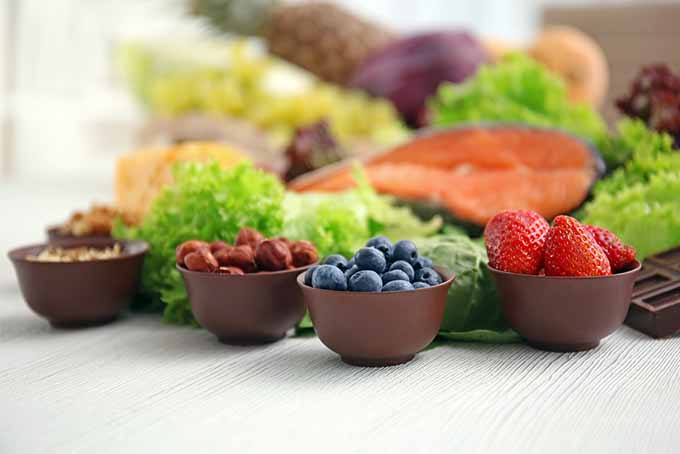
Along with fish, choose lean proteins and try to incorporate at least one meatless entree into your weekly plan.
And you need to be honest with yourself. It might be hard, but you need to accept that battered, deep-fried apple rings sprinkled with sugar and cinnamon doesn’t really count as a serving of fruit!
And now, on to the heart-smart foods.
Serve Up Fish For Omega-3s
Fish is one of the premier foods for heart health, and the American Heart Association recommends a minimum of two servings per week.
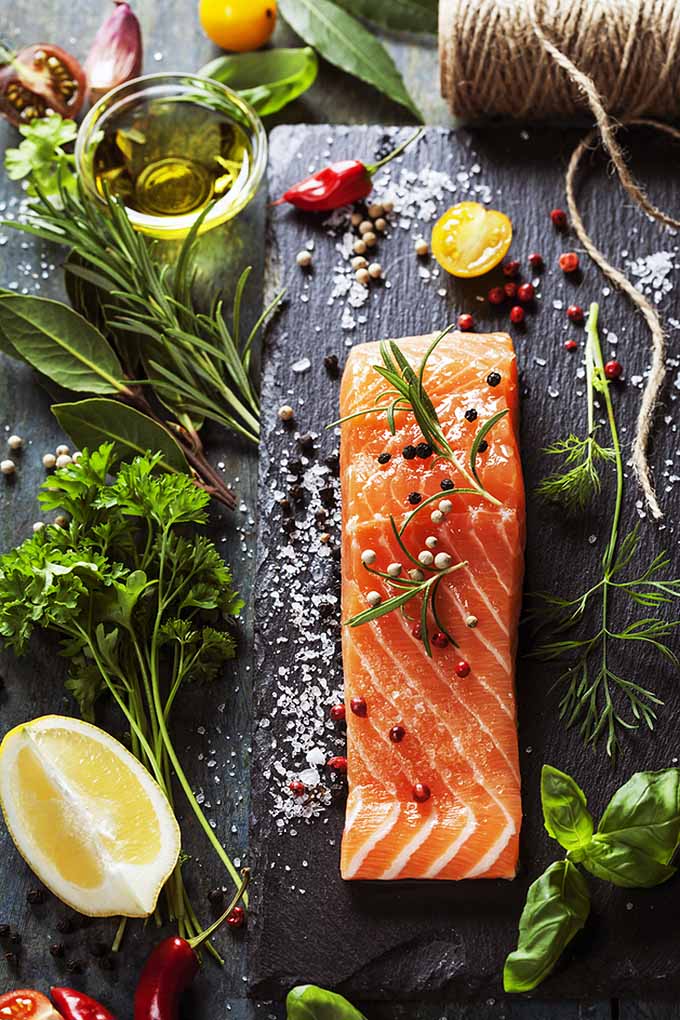
Varieties that are rich in two types of omega-3 fatty acids, eicosapentaenoic acid (EPA) and docosahexaenoic acid (DHA), are the best choice.
EPA and DHA are known to reduce the risk of abnormal heartbeats (arrhythmias), decrease unhealthy triglyceride levels, and slow the growth rate of atherosclerotic plaque. In other words, they support a strong heart and keep the blood flowing where it needs to go.
Choose from fatty varieties such as salmon, mackerel, albacore tuna, fresh water trout, herring, and sardines, and shellfish like oysters, clams, scallops, and mussels.
We have some delicious fish ideas for entrées and canned salmon and tuna are naturals on top of a green salad.
Don’t Forget The ALAs
Alpha-linolenic acid (ALA) has been shown to combat chronic inflammation, which means it also plays a significant role in protecting against heart disease.
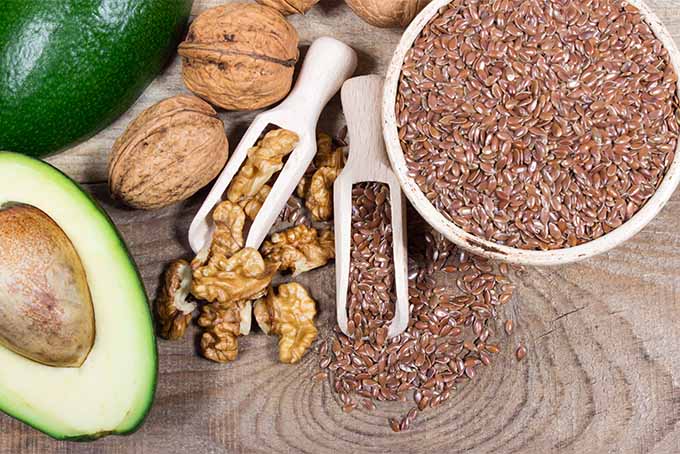
While inflammation provides a defense against infection and destroys harmful bacteria and pathogens, when it’s always “on,” or chronic, it can contribute to aging and a variety of degenerative diseases, including CVD.
ALA is a plant-based omega-3, and it’s found in soybeans and products like tofu, as well as flaxseed and walnuts plus their oils, and canola oil.
A perfect way to incorporate plant-based omega-3 goodness in your diet is with our recipe for Sriracha tofu, green bean, and carrot stir-fry!
Savory Legumes
Chickpeas, dark beans, and lentils are excellent sources of soluble and insoluble fiber, which are good for lowering low-density lipoprotein cholesterol (LDL) – or the “bad” kind.
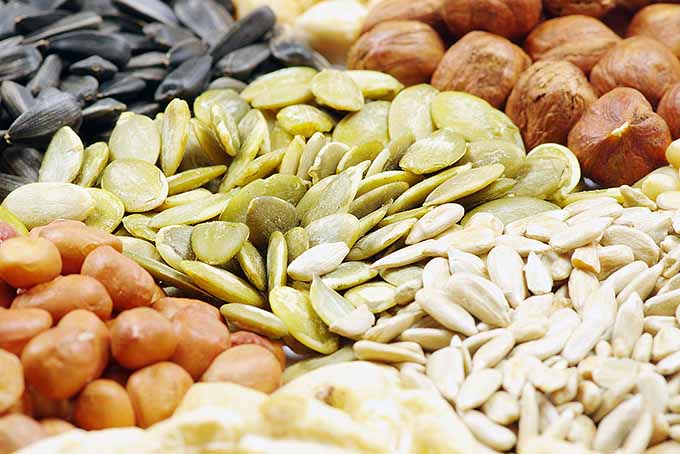
Soluble fiber dissolves in the intestinal tract and surrounds dietary cholesterol, moving it through the body before it can be absorbed into the blood. And insoluble fiber helps to move foods through the digestive system.
Outstanding in savory dishes, legumes have a variety of uses:
- Try lentils in hearty stews, soups, and dal.
- Dark beans – like kidney, pinto, and black varieties – are superb in vegetarian chili.
- Chickpeas can be roasted, added to salads, or made into tasty hummus and falafel.
- If you purchase canned legumes, look for low-sodium brands to help keep blood pressure at safe levels.
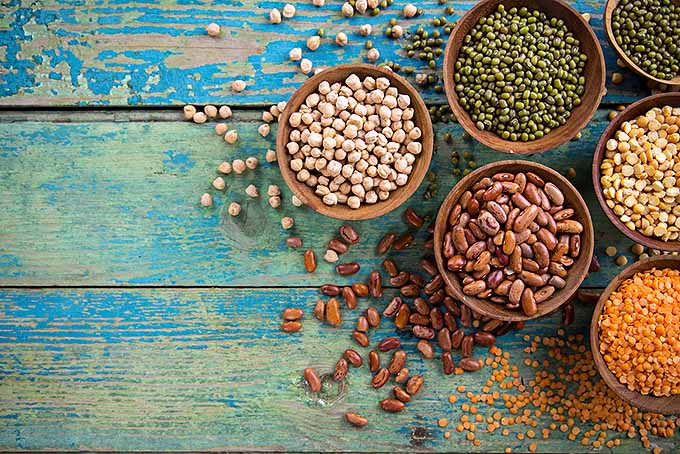
Gorgeous Grains
Oats and barley are particularly helpful, and these contain a fiber known as beta-glucan, which helps to reduce LDL cholesterol.

One and a half cups of cooked oatmeal per day, or a cup of cooked barley, are top-notch dietary foods to help balance cholesterol levels.
Beta-glucan can also be found in shiitake mushrooms, seaweed, and algae.
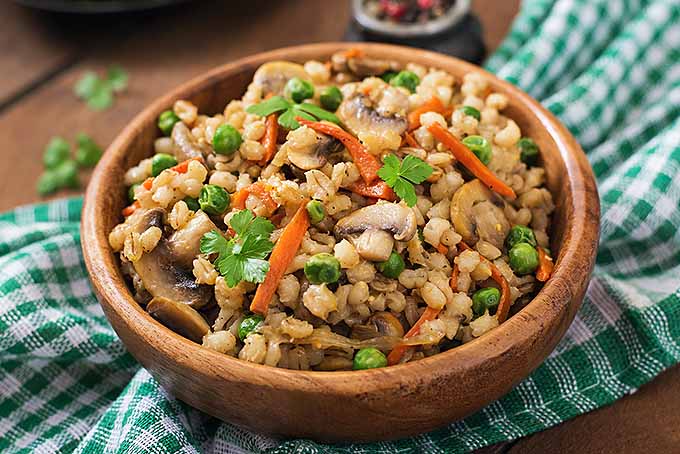
Bring On the Berries
Fresh berries are another plant source that’s chock-full of beneficial phytonutrients and soluble fiber.
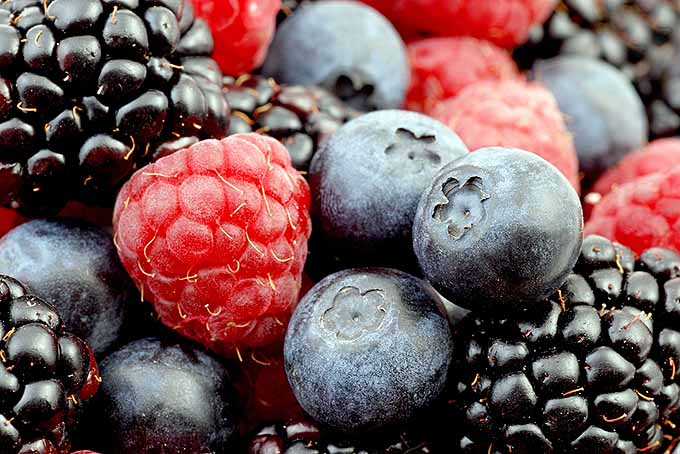
Acai berries contain high levels of omega-3s, and like raspberries, blueberries, blackberries, cranberries, and strawberries, they are rich in heart-healthy polyphenols like anthocyanins.
These antioxidant compounds help to mop up destructive free radicals, which attack blood cells and contribute to coronary disease.
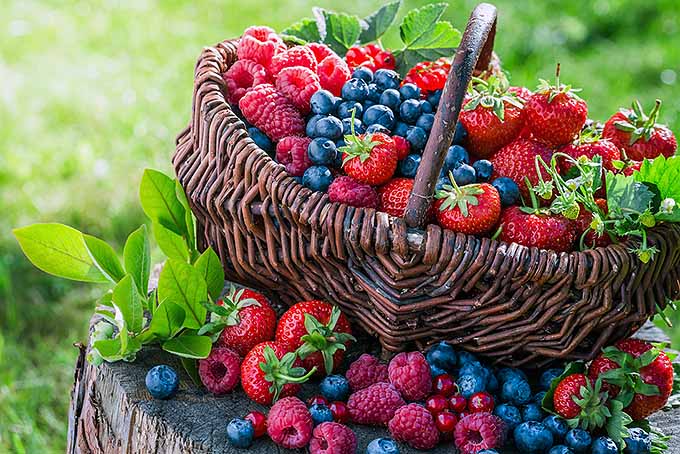
Dark Grapes and Red Wine
Red and black grapes and their juice offer high levels of health-protecting antioxidants, including resveratrol and other flavonoids.

These compounds help to keep blood platelets from sticking together and aid in the prevention of blood clots, reduce LDL cholesterol, reduce damage to heart blood vessels, and help to regulate blood pressure.
A glass of red wine also contains resveratrol. A daily four-ounce glass for women and up to two for men can help to improve high-density lipoprotein (HDL) levels – the “good” type of cholesterol.
Bright, Beautiful Vegetables
Brightly colored vegetables in the red, orange, and yellow color spectrums – such as tomatoes, peppers, acorn squash, tomatoes, carrots, yams, and sweet potatoes – are heart friendly as well.

Loaded with soluble fiber, they also possess carotenoids. These have powerful antioxidant properties that can help to reduce cardiovascular risk by improving blood pressure levels, reducing inflammation, insulin resistance, and obesity, and helping to correct high concentrations of fats in the blood.
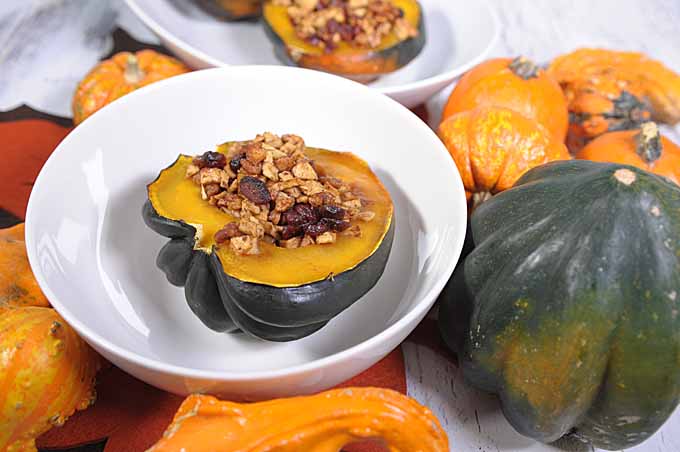
You can even use these veggies as ingredients in your baking repertoire, like in our recipe for multigrain carrot bread.
Roasting root vegetables in the oven brings out a wonderful sweet and caramelized flavor that’s so delicious – the healthy way!
Leafy Greens
Leafy greens like kale, spinach, Swiss chard, bok choy, mustard greens, collards, and dandelion leaves are packed with nutrients including vitamins A, C, and K, dietary fiber, and disease-busting phytochemicals.
All of these can help to reduce cholesterol levels, regulate blood pressure, and alleviate swings in blood sugar levels.

They also contain good levels of potassium and folate, which help to keep hearts healthy. And some, like kale and collards, also have high levels of calcium, which helps to normalize blood pressure.
Plus, steamed kale and mustard greens help to reduce cholesterol levels by stimulating the liver, which uses cholesterol to make bile.
Eat your greens fresh in a smoothie or salad, or steam them lightly for the best nutritional value.
Another great alternative is to juice them for a super-nutritious drink.
Crunchy Cruciferous Vegetables
Cruciferous veggies such as broccoli, cauliflower, Brussels sprouts, bok choy, and cabbage are another outstanding source of fiber. These have been shown to cause a significant reduction in the key markers of inflammation, like oxidative stress.
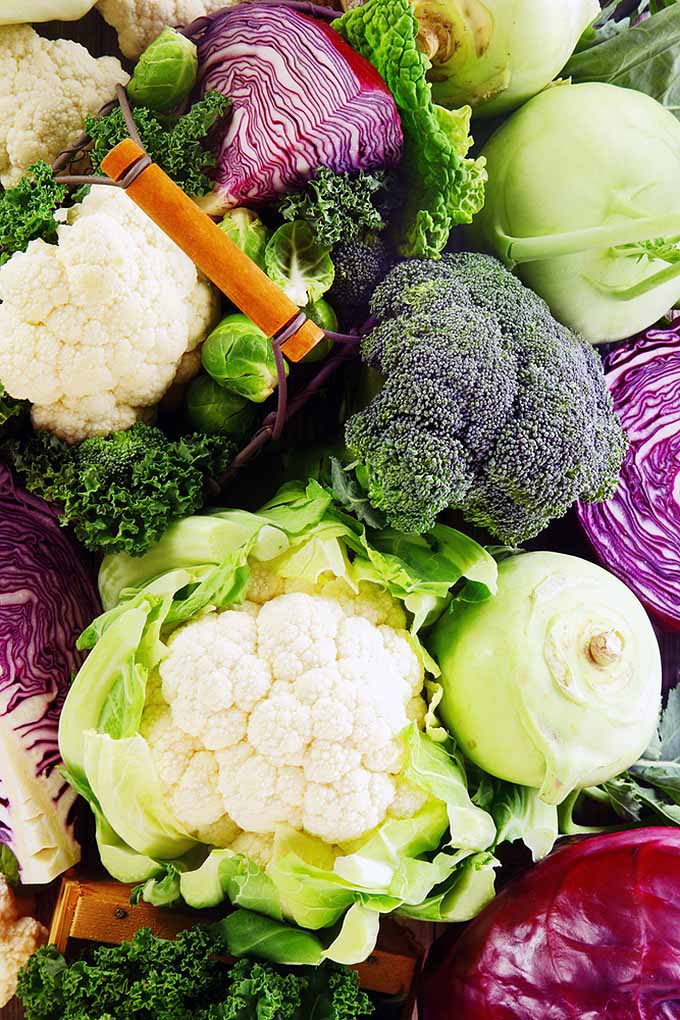
Eat your veggies raw in a salad, chopped or shaved and added to a vinegar-dressed slaw, or sliced and served with a tasty hummus or homemade tzatziki dip.
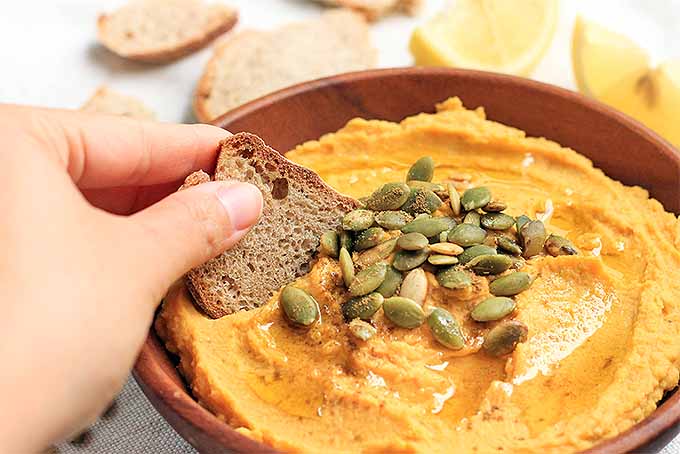
Yummy Yogurt
Yogurt is a somewhat surprising recent addition to the list of foods that promote heart health.
This is surprising because we’ve long been advised to reduce our intake of the saturated fats and cholesterol that are found in dairy products.
However, a 2011 Australian study conducted on almost 1100 women over the age of 70 revealed some interesting results.
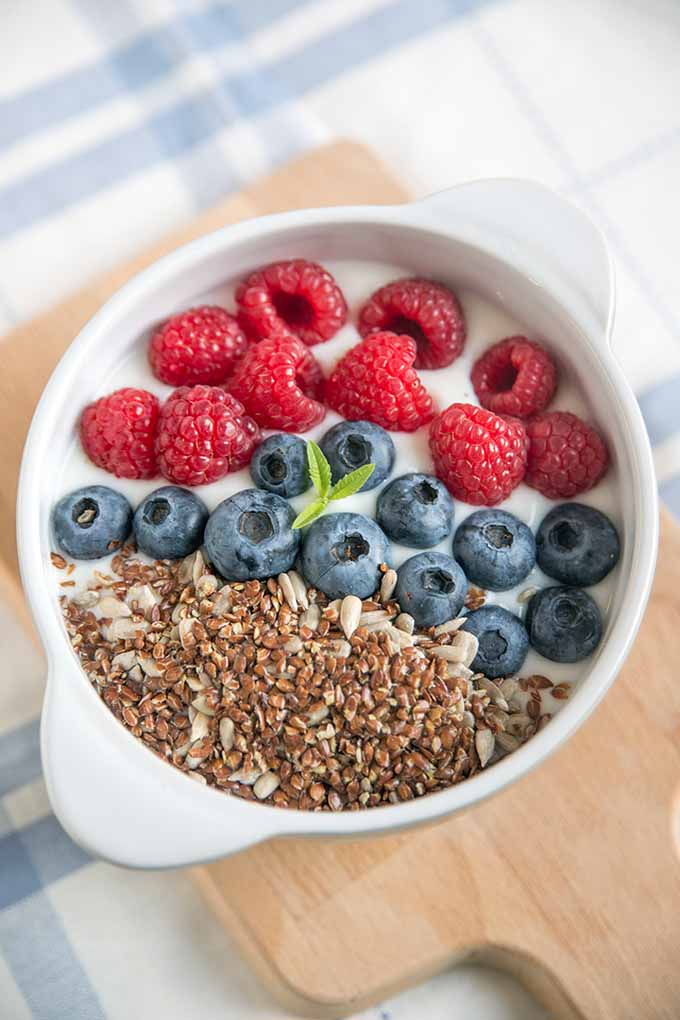
Those women who consumed just under one-half cup of yogurt daily had significantly lower amounts of accumulated plaque on the walls of their carotid arteries than those study subjects who didn’t.
And the thickness of carotid arteries is a reliable predictor of the risk of stroke and heart attack.
The results of a 2013 study report that yogurt consumption results in a healthier metabolic profile, lower body mass index (BMI) and waist circumference, plus lower levels of triglycerides, glucose levels, insulin resistance, and lower blood pressure.
And with its live and active cultures, yogurt is a type of fermented food that can help maintain a healthy gut microbiome.
Choose low fat or fat free yogurt to reduce saturated fat intake, and watch out for added sugar.
Mix 1/2 cup plain yogurt with a tablespoon of ground flaxseed and raw pumpkin, sesame, and sunflower seeds, a diced apple, and a drop of pure vanilla extract for a powerhouse breakfast.
For those that still can’t abide the taste of plain yogurt, add it into a daily smoothie or cool and creamy mango lassi to enjoy its benefits.
Dark Chocolate
Cacao is packed with flavanols, which are known to help prevent blood clots and lower blood pressure.
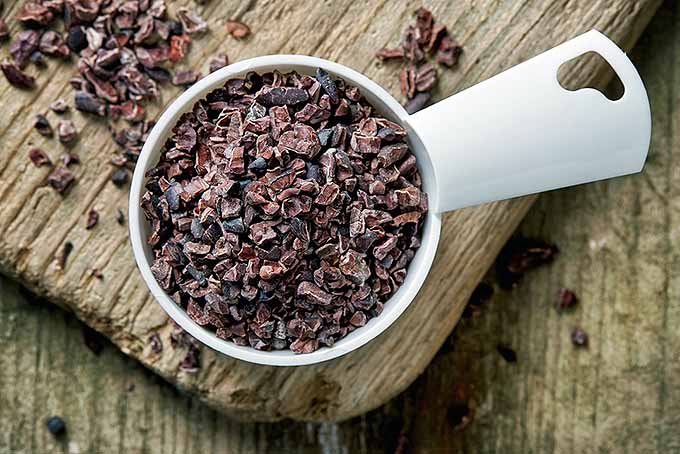
Flavonoids are plant compounds, important antioxidants with anti-inflammatory benefits that prevent cholesterol from gumming up the arteries.
And no, this doesn’t mean that switching to dark chocolate candy bars is a healthy choice!
For optimal intake of flavanols and minimal sugar, choose chocolate with at least 70 percent cacao. Or try unsweetened cacao nibs – add them to your morning granola or yogurt.
Nuts and Seeds
Nutritious nuts and seeds are a great option for healthy snacking. Rich in fiber, they take care of hunger pangs and help your heart.
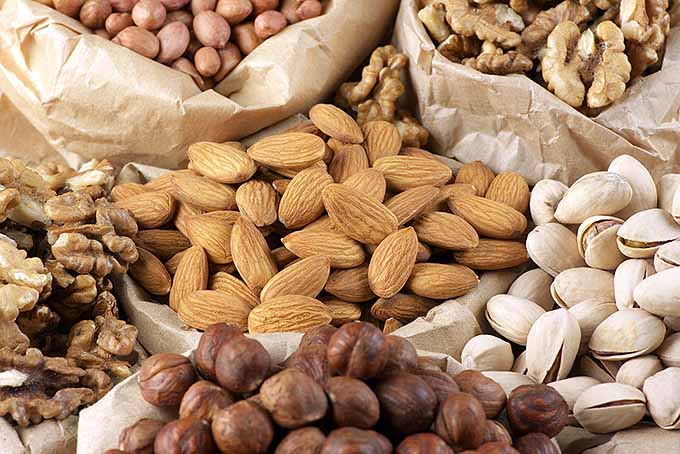
Their unsaturated fat helps to lower LDL cholesterol, and many contain good levels of omega-3s.
High in vitamin E, an antioxidant that fights free radicals, walnuts and almonds top the list for anti-inflammatory AHAs. Ground flax, hemp, chia, and pumpkin seeds all contain good levels of AHA as well.
Heart Smart Oils
Replacing unhealthy saturated and trans fats with monounsaturated and polyunsaturated varieties is another step towards a strong ticker, thanks to their plant based omega-3 and omega-6 fatty acids.
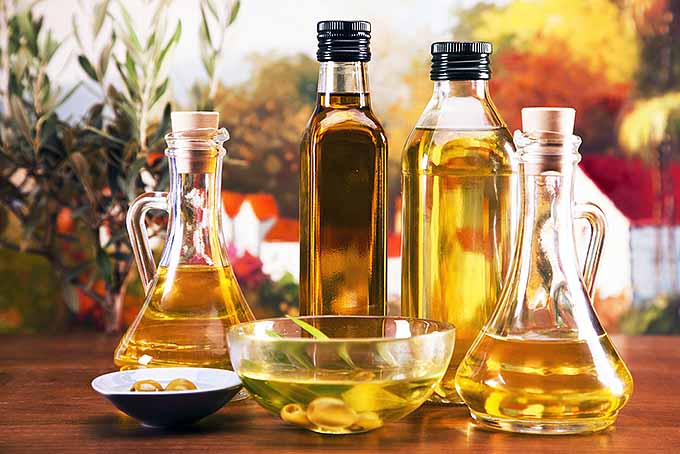
Saturated fats derived from animals (found in meat, butter, cheese, and whole milk) and trans fats (partially hydrogenated oils), raise LDL cholesterol levels and can cause buildup inside arteries.
To limit consumption of unhealthy fats, choose from the following healthy cooking oils:
- Avocado
- Corn
- Canola
- Grapeseed
- Olive
- Peanut
- Safflower
- Sesame
- Soybean
- Sunflower
As oils can have neutral to strong flavors, it’s a good idea to keep a couple of types in the cabinet for different purposes.
Refined oils with a high smoke point like peanut, canola, soybean, sunflower, safflower, and light olive oil are suitable for higher temperature cooking. And unrefined varieties like avocado, coconut, sesame, extra virgin olive, and grapeseed oil are better for salad dressings, drizzling, and low temp cooking.
Look for oils with under 4 grams of saturated fat per tablespoon, and zero partially hydrogenated oils or trans fats.
Herbs and Spices
Add a little spice to your diet! Most herbs and spices contain phytochemicals shown to have anti-inflammatory properties, and they may aid the reduction of blood sugars.
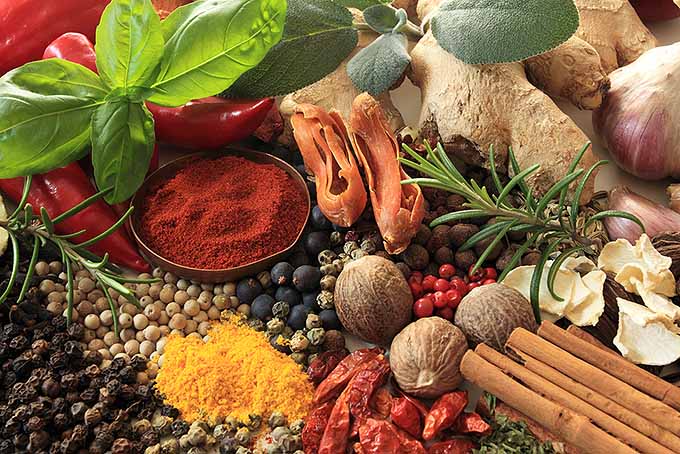
Cinnamon has been shown to control blood sugars and lower cholesterol, while turmeric helps check homocysteine levels and improve liver function, which clears out excess LDL cholesterol.
Ginger also aids in lowering cholesterol and improves circulation. Rosemary is loaded with antioxidants and anti-inflammatory compounds, and is showing promise in controlling type 2 diabetes.
And don’t forget the cayenne. It also helps to improve circulatory conditions and blood flow, and is known to be effective in helping with weight loss and detox programs.
Basil has flavonoids that can also be useful in preventing diabetes, blood clots, and heart attack.
Cloves, garlic, parsley, thyme, onions, and oregano also contain high concentrations of phenolic antioxidants that may lower triglyceride levels, help regulate blood sugar, and protect against infection-related heart disease.
Dishing It All Up
As the old adage goes, an ounce of prevention is worth a pound of cure… and wouldn’t you rather improve your heart and overall health naturally, without the need for medications or surgery?
You can pull your own meal plan together from the above foods, or if you prefer to follow an established program, there are oodles of heart-healthy diet books available, as well as our own thorough analysis of popular diet plans.

It all boils down to three simple things: butt out, move your butt, and eat smart.
And remember that change is easier with a support system. Get your family, friends, coworkers, or neighbors involved to increase your chances of success – and you’ll also be helping others lead healthier lives as well. It’s a win-win all around!
Do you have any other tips or ideas for supporting strong hearts and smart eating? Let us know in the comments below!
Photo credit: Shutterstock.
The staff at Foodal are not medical professionals and this article should not be construed as medical advice. Foodal and Ask the Experts, LLC assume no liability for the use or misuse of the material presented above. Always consult with a medical professional before changing your diet, or using supplements or manufactured or natural medications.
About Lorna Kring
Recently retired as a costume specialist in the TV and film industry, Lorna now enjoys blogging on contemporary lifestyle themes. A bit daft about the garden, she’s particularly obsessed with organic tomatoes and herbs, and delights in breaking bread with family and friends.



